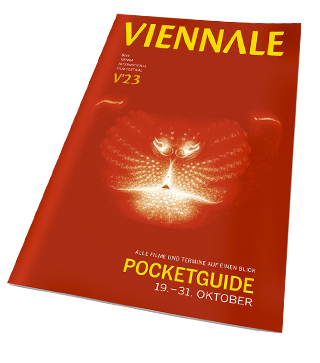by Ariadna Solera Centeno
Essential Truths of the Lake by Lav Diaz
Following Wittgenstein and the Frankfurt School, as well as living through Nazism, poet and philosopher Ingeborg Bachmann wrote passionately about silence. In the contemporary era, she defended the notion that «The social, interpersonal, and political conflicts have displaced religious and metaphysical disputes. And all of them converge into the conflict with language».[1] In her verses, she envisioned a conditional future, foreseeing defeats for the foolish who are guided by impulsive and hasty words. Her images of disarray allow us to imagine the state of affairs of the world in her time, images that displace between two opposite silences. «Only the images remain timeless [...] Thought, being a tribute to time, must be new»[2]. There is a written silence kept as a warning to avoid hegemonic beauty as a fight against the noise of falsehood, defamation, and prejudice. There’s another silence she feels the urge to commit to: it’s related to the urgent combat against the silence of those without a voice, the one that —according to Hannah Arendt— perpetuates crime and forgetfulness.
In post-war European cinema, a trend emerged: avant-garde scripts depicted internal conflicts. The generational silence goes hand in hand with the feminist battle. Pain and trauma are concealed behind the mask of progress. The characters' ethical pessimism prevents them from engaging in a struggle, adopting skeptical passivity or a constant state of waiting and canceling the notion of a deus ex machina. The narrative event is no longer a requirement; thus, language forms allow for questions about the temporalities of the inhabitable world, questions of significant interest in late capitalism. In The River (1950) Jean Renoir’s camera leisurely and delicately explores characters sleeping, to offer a deliberate description of the flow of life, while the main action remains off-camera. And, of course, Jean-Luc Godard captured the impossibility of communication between lovers. In the spirit of Bachmann, Chantal Akerman developed an aesthetic of long duration enabling observation, reflection, and introspection. The insignificant could become an object of contemplation. Marguerite Duras and Akerman both portrayed existential solitudes, particularly within the intimate. Toute une nuit has barely any dialogue. In Les Rendez-vous d'Anna, the solitude of existence in modernity is expressed through these silences, filming the sphere of the private, the immediate, the small, the confined. When actions are specific to the function of each space, suspense is nullified. In Vera Baxter (1977). Duras films the tedium of time passing that a woman feels after her divorce. She radically displaces the characters to the edges of the frame, making them appear and disappear, enhancing an empty composition, a projection of inner discomfort. A film time that makes us be aware of the great existential anxiety of time as a mirror. Thought is subject to the variations of time. Thought is transient, but not ephemeral.
A tension of attractive and repulsive forces arise in the cinema of Lav Diaz. In a state of permanent territorial and political crisis, he explores the potential cinematic power to capture internal conflicts in the silences between things, days, and dialogues. Bachmann’s notion of silence as a language of suspicion nourishes and expands this detective story and the ghosts that inhabit it, committing to the prosaic aspects of life. «From memory and reflection, from the damaged life, arises the need to plunge into the abyss, to strive for language, to explore the possibilities of the word, to expand its limits and the limits of our world». The policeman’s memory triggers remembrance, and remembrance triggers words and silences. As in Bachmann’s poems, Diaz encapsulates both silences, particularly the urgent one to combat the perpetuity of crimes and collective memory loss, calling for immediate action and alluding to the resilience needed to withstand further atrocities and suppression.
[1] BACHMANN, Ingeborg: (2010), Lliçons de Frankfurt. Problemes de literatura contemporània, Mallorca, Lleonard Muntaner.
[2] Ibid.

For the first time the VIENNALE hosts a YOUNG CRITICS' CIRCLE. A group of young, international film critics are working under the editorial and organisational guidance of author and film critic Patrick Holzapfel on a number of texts dealing with the programme of this year's festival. This initiative is related to our commitment regarding the perception and discussion of film criticism in its permanent state of crisis.

ESSENTIAL TRUTHS OF THE LAKE
Lav Diaz | Switzerland, France, Vereinigtes Königreich, Italy, Philippines, Portugal, Singapore 2023 | 215 min | OV w/ EN subtitles
Screenings on:
Thursday, October 26, 2023: 10.00 am- Metro, Historischer Saal
Saturday, October 28, 2023: 8.30 pm - Urania

